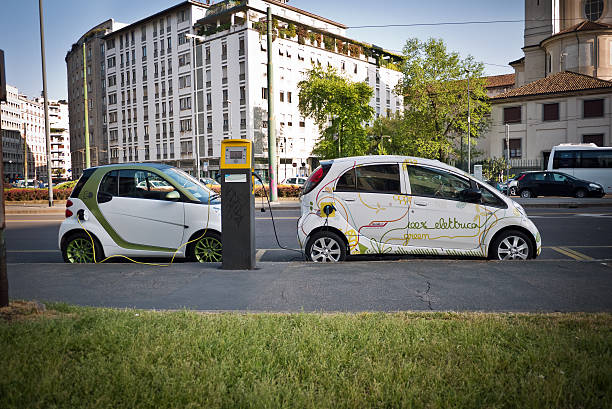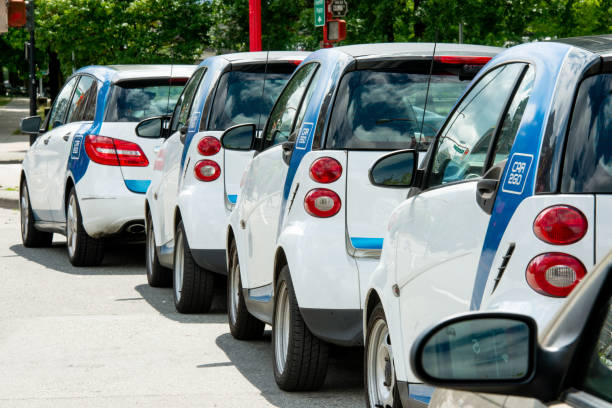Any vehicle that utilizes high-tech electronics can be considered a smart car. The term “smart car” means a model that works better like our cell phones have become “smartphones.” The weight of a smart car is one of the main factors that increase efficiency.
Despite appearances, smart cars are much more durable. They receive top safety ratings from the National Highway Traffic Safety Administration and the Insurance Institute for Highway Safety. Because it gets good gas mileage and has lower insurance costs, a Smart car is smart.
How Did the Concept of the Smart Car Evolve?
Similar to how our mobile phones have evolved into “smartphones,” the broad phrase just refers to a more efficient type.
One of the most crucial factors in promoting efficiency is smart car weight. We’ll examine the car company with the same name in order to focus on the Smart Car Weight controversy.
They had named it “The smart USA.” The beginning of the smart USA was in the early 1990s. They were initially a joint venture between Mercedes-Benz and Swiss watchmaker Swatch.
The car company was established after Swatch Mercedes Art became SMART. The main purpose of a car is transportation. Helping people get to and from work seems to be the primary purpose of transportation.
We can manage our expenses by having a living thanks to our jobs. Being active outside of the home is beneficial to us.
How Much Does a Smart Car Weigh?
Due to their small size and ease of operation, smart cars are quickly gaining popularity. However, before purchasing a Smart Car, many people want to know how much it weighs.
The average weight of a Smart Car from the first, second, and third generations is 1550 pounds. But it weighs 1850 pounds, which is a bit more than the previous generation. On average, the Smart Car measures 61.4 inches wide and 106.1 inches long. Its wheels are spaced 73.5 inches apart.
There are numerous scientifically supported reasons why smart cars were designed to be compact and light.
To use less gas, the Smart Car was made to be compact and lightweight. The Smart Car’s weight, however, has an impact on fuel consumption. Compared to light cars, heavy cars use more gas.
Importance of Smart Car Weight
Getting people from one place to another is a car’s primary function. Getting to and from work is the main reason people need transportation. Our jobs provide us with the means to pay our bills and engage in other enjoyable activities when we’re not working.
This method of transportation is however expensive. Our earnings from work go toward covering this expense. The money you earn from work will therefore go further if you choose a smart car that isn’t expensive.
Gas is the most expensive component of car ownership. The main factor that determines how much gas a car need is the weight of the smart car in pounds.
A car requires more gas or energy to move the more weight it has. This means that the smart car weighs somewhere around 1,550 pounds. “Curb weight” is another term for a car’s weight. A smart car still weighs 1,550 pounds at the curb. The car weighs this much when it is idle and parked at the curb.

Weight Distribution of a Smart Car
Stability of Smart Car
As a result, the front and back brakes wear out at various rates and perform improperly when applied. The brakes on a smart car will wear out and require replacement around the same time if the weight is distributed evenly. The brakes won’t degrade at various rates as a result.
If you’ve ever watched a car show and seen a driver lift the front wheels off the ground as the car starts to move, you’ve seen a “wheelie.” The majority of a vehicle’s weight needs to be over its back wheels in order for it to lift its front wheels off the ground. When the gas pedal is depressed and the front end is not heavily loaded, a wheelie will occur. This causes the car to advance.
However, if you were riding a bike quickly and only applied the front brakes to stop, you might have overturned the front handlebars.
Due to the excess weight on the front wheel and the forward motion of the vehicle, this is happening. Both types of uneven weight compromise the stability and safety of the car.
Safety of a Smart Car
A smart car’s weight stability plays a significant role in how safe it is. It would be difficult to handle and control the smart car if the weight wasn’t distributed evenly, which could be dangerous.
People used to say, “Bigger is safer” if you were in a car accident.
However, the safety features of the smart car keep occupants secure without adding significantly to the weight of the vehicle. Keep in mind that you can save more on gas if you carry less weight.
There are four airbags built into the vehicle to protect you. In rear-end collisions, headrests that are already there prevent whiplash. Unfortunately only slightly increase the weight of a smart car. Modern seat belt safety features and specially-made bucket seats keep the person in place.
A Tridion steel safety shell that can withstand collisions at 70 mph covers the interior of the vehicle. People are also protected by the front crumple zone of the vehicle. This layout is acceptable because the engine is in the back of the vehicle.
As a result, despite smart cars’ lightweight, they are not unsafe. In contrast, they have passed the same crash test requirements that all other vehicles must pass in order to be approved for the road.
The Bottom Line: 1,550 Pounds
To respond to the query, “How much does a smart car weigh?” an electrical smart car looks to weigh roughly 1125 kilograms or 2480 pounds on average. Smart cars with four passenger seats have a weight limit of 1200 kg (2645 lbs).
The average weight of a car, according to some sources, may only be 1850 pounds. Based on the options and amenities offered, that.
Smart cars with four seats can weigh up to 1200 kg (or 2645 pounds). The average weight is reported to be as low as 1850 pounds in many sources. That is dependent upon the features and amenities, as well as the distribution of the car’s weight.
The weight of an automobile increases with the amount of fuel or petrol required to drive it. A smart car typically has a weight of 1,550 pounds.



